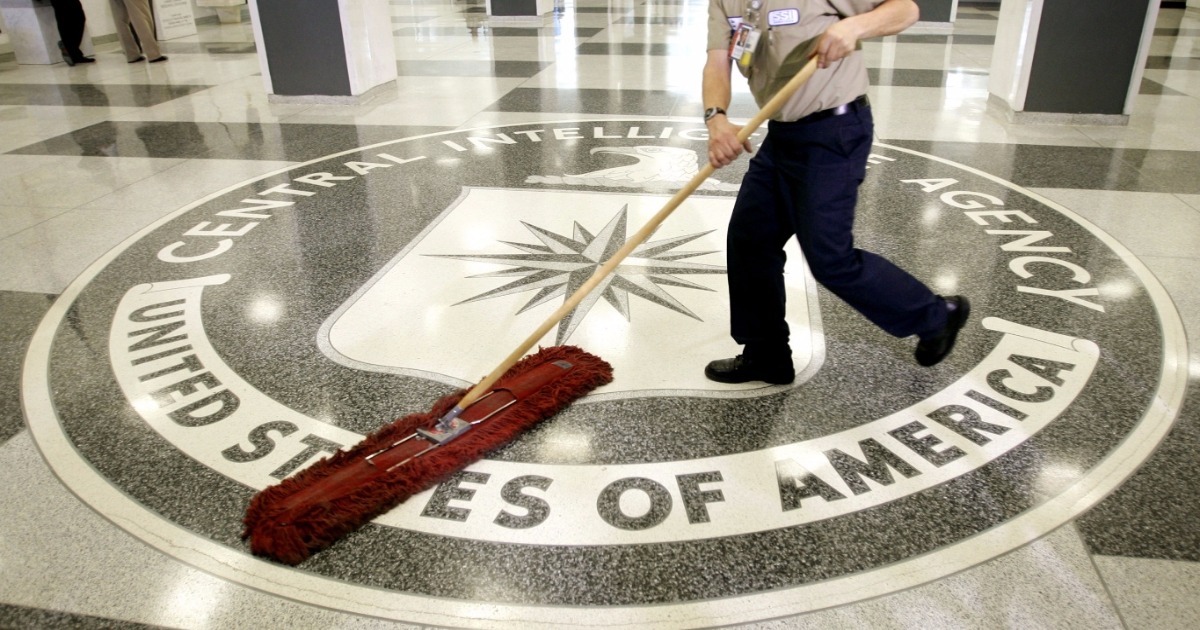There is this popular image of the world of espionage which resembles novels by Ian Fleming or Robert Ludlum. If you’ve ever seen movies featuring the characters of James Bond or Jason Bourne, you have an idea. That’s the myth. However, the reality is closer to the 1960s TV sitcom Get Smart, British actor Rowan Atkinson’s Johnny English, or MAD Magazine’s “Spy vs. Spy.”
The fact of the matter – according to a former diplomat from Australia – that spies from all countries are primarily interested in employment security. i.e., keeping their jobs, not saving the world from Dr. No.
They’re not even above making up “intelligence” out of whole cloth. Remember the debacle in Iraq and those WMDs? Those are the same people who have been telling us that Russian operatives hacked U.S. elections in favor of Trump, that Trump himself is working for the Russians, and that Russian Ambassador to the U.S. Sergei Kislyak is himself a spy.
Gregory Clark, a British diplomat and writer who has been living in Japan since 1976, describes the people who work in espionage as “second elevens” – which, in British parlance, refers to the second-stringers for a cricket team. Unqualified or unable to get jobs in the diplomatic corps, they wind up working as spies. Their primary goal, he says, is to advance their own careers by undermining diplomats and “using largely bogus information to get close to the people in power.” This is how the Bush II Administration got its information about WMDs in Iraq, despite what the President was told by diplomats who had actually lived and worked in the Middle East.
That all may seem like a bad comedy – but it had tragic consequences. Since the U.S. invasion of Iraq in 2003, nearly 270,000 civilians have been killed as a result of military action, sectarian violence and criminal activity (and that’s just the deaths that have been reported). Those consequences continue, with the rise of the Islamic State, born of that misguided invasion. All of this, in part, because of self-serving incompetence on the part of the CIA.
It’s not just U.S. intelligence agencies. According to Clark, this sort of incompetence is found in spy agencies in virtually every major country. For example, Naicho, Japan’s counterpart to the CIA, continues to operate as if the Cold War was going on, despite the fact that Russia has extended the same freedoms to Japanese diplomats as they give to those from Western countries. “Like dogs chasing a bone, they are so crudely persistent and obtrusive that even ordinary diplomatic work becomes impossible,” he writes.
A few decades ago, when Clark returned to Australia from a two-year stint as a diplomat to the Soviet Union, he underwent the standard debriefing. Then he was grilled about how he knew the location of KGB headquarters despite the fact that the Lubanka Building is located on one of Moscow’s main thoroughfares only a few blocks from the Bolshoi Theater – and can be easily found by any casual tourist.
In another incident, Clark received a phone call from a Russian-speaker claiming to be from the Soviet Embassy. The speaker told him that an official wanted to meet with him “urgently.” The problem was that the caller’s dialect was dated: that operative spoke “pre-revolutionary Russian,” meaning that he was from a family who had immigrated to Australia decades earlier in the wake of the 1917 Revolution – and therefore, could not possibly have been an embassy employee. “That little detail passed completely over the heads of our Australian security interest defenders,” Clark says.
This is the same idiocy that is fueling the current U.S. hysteria over Russia. CIA operatives are doing their level best to whip up that hysteria against members of the Trump Administration and other lawmakers and bureaucrats for their conversations with Ambassador Kislyak. However, as we pointed out last week, such conversations are part of their jobs.
Donald Trump and his right-wing populist counterparts like France’s Marine LePen are scary enough. But what is more terrifying is that they are being manipulated by a bunch of self-serving, bumbling ignoramuses whose primary concern is job security. What will the human cost be? Did we learn nothing from Iraq?




